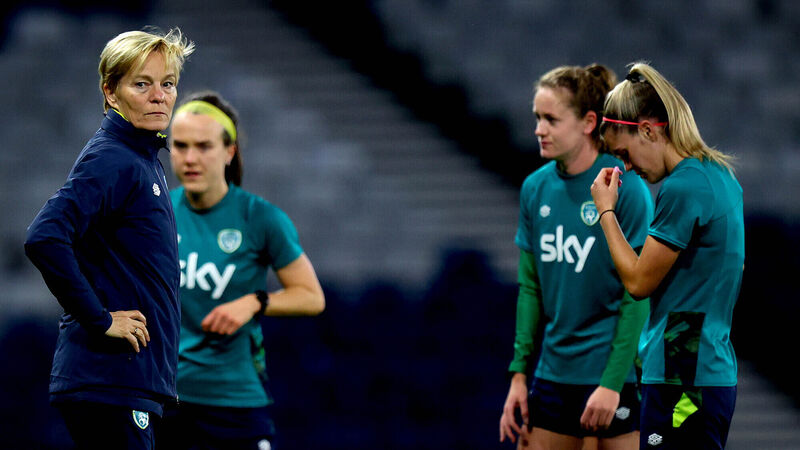Kieran Shannon: Scotland game a pivotal moment in Irish football

PIVOTAL MOMENT: Ireland manager Vera Pauw. Pic: INPHO/Ryan Byrne
When Sue Anstiss was looking for a title for her 2021 book on the “unstoppable rise” of women’s sport in her native UK and beyond, she eventually settled on Game On because it elicited how she felt about the subject matter.
“The dictionary says ‘game on’ is ‘used to show that a competition of some kind is about to start, usually when you are excited about it.’ The slang dictionary says it’s ‘an expression used to kick off a contest, issue a challenge, or express general enthusiasm.’ And that’s it for me. Excited and enthusiastic [about the progress made] but recognising there is still a big challenge ahead,” wrote Antsiss.









